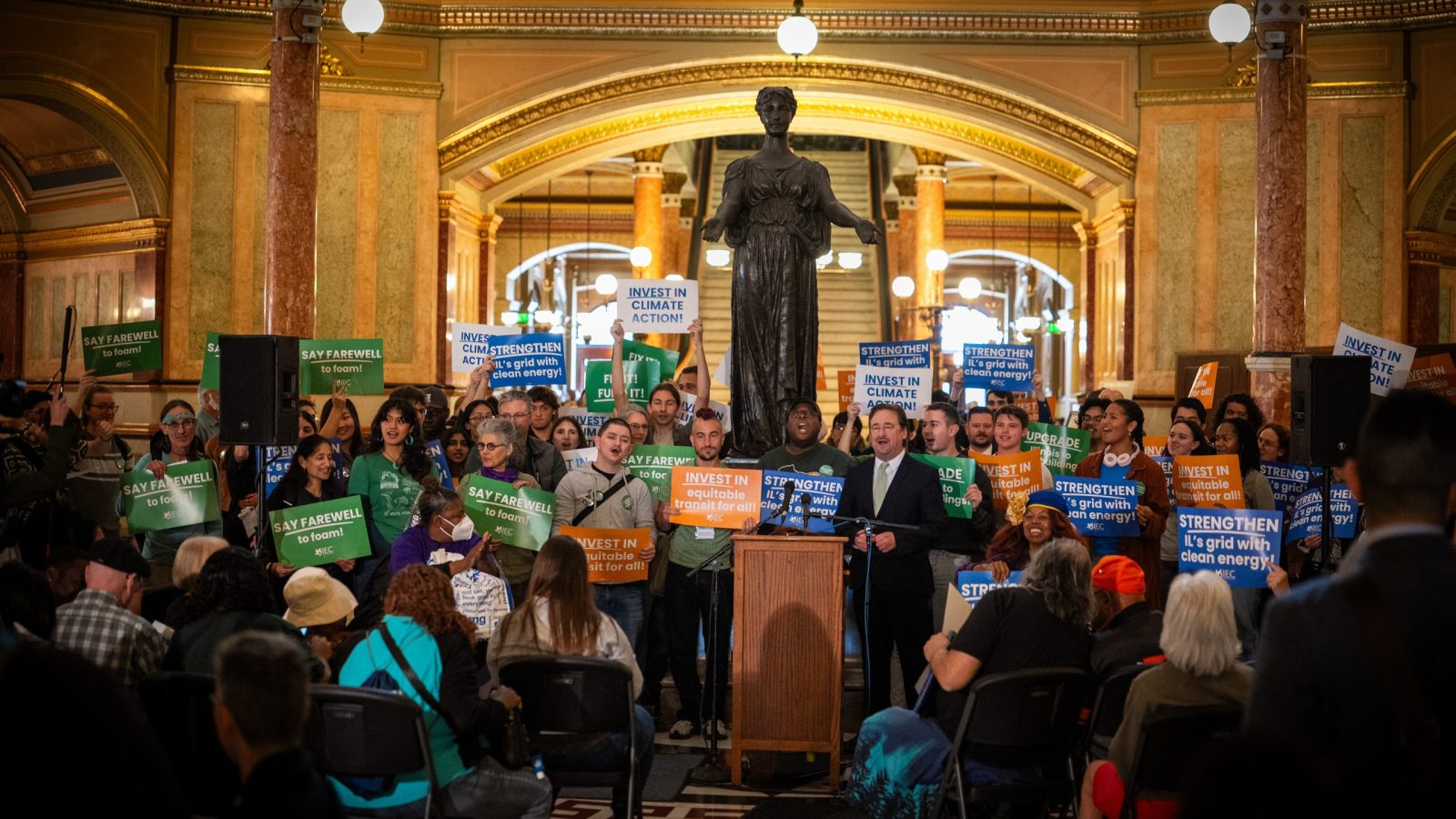Kate Katauskas
Communications Intern
Each fall, while most of us are thinking about pumpkins and park walks, Illinois lawmakers head back to Springfield for something called Veto Session. It’s a crucial time when big decisions get made about the laws and policies that shape life in our state. At IEC, we use Veto Session to push legislation that protects our environment.
So…what is Veto Session exactly? Let’s break it down.
Who + What
Veto Session is a short period when the Illinois General Assembly reconvenes after the regular spring session. Lawmakers return to review any bills the Governor has vetoed; a formal rejection of a bill becoming law. Lawmakers can then override, accept, or adjust those decisions.
While the primary purpose of Veto Session is to consider vetoes, lawmakers often use this time to address other key issues and pass new legislation that did not make it through the regular session. This use of the Veto Session is common in Illinois these days, where our governor and both chambers of the Illinois General Assembly work to align during the legislative process when possible, making vetoes fairly rare. Moreover, this makes Veto Session an important opportunity to advance unfinished business like funding priorities, environmental protections, and sustainability policies that need one last push before the year ends.
When + Where
Most Veto Sessions run in the fall, between late October and early November, but in election years, Veto Sessions run between late November and early December. No matter when they take place, they are split into two weeks and are held at the Illinois State Capitol in Springfield.
Why it Matters
For advocates like IEC and for everyone who cares about clean air, water, transit, and climate, Veto Session is a big deal. It’s one of the last chances of the year to push for meaningful progress and set the stage for the next legislative session.
This year, we’re especially focused on:
- Transit Funding: Illinoisans deserve reliable, accessible, and sustainable public transportation.
- The Clean & Reliable Grid Affordability (CRGA) Act: Help bring down electricity costs for consumers and businesses and stabilize our energy market.
Even with Veto Session as a critical moment, it’s important to remember that big environmental wins can happen outside of Veto and Regular Session, too.
Big Wins Don’t Only Happen in Veto Session
Some of Illinois’ most transformative environmental laws were passed during special sessions, showing that advocacy throughout the year matters. The Climate and Equitable Jobs Act, or CEJA, was passed during a special session. This put Illinois on the path to 100% clean energy, expanded solar and wind, and created good green jobs. Strong coalition-building and persistent advocacy helped make this ambitious policy a reality.
Together with Veto Session wins, these achievements show that progress in Illinois happens year-round, and every voice counts in moving the needle on clean air, water, and climate policy.
How You Can Help
Your voice makes a difference — seriously! Lawmakers pay attention when constituents speak up, especially during Veto Session when decisions move fast.
Take Action All Year:
- You can find all our active action alerts HERE.
About the Author
Kate is the Illinois Environmental Council’s Communications Intern, creating content to inspire Illinois’ environmental community to take action. Her past work highlights sustainability, environmental policy, and environmental justice. She is passionate about inclusive scientific communication and strives to turn complex issues into actionable advocacy.
Read more by Kate:

